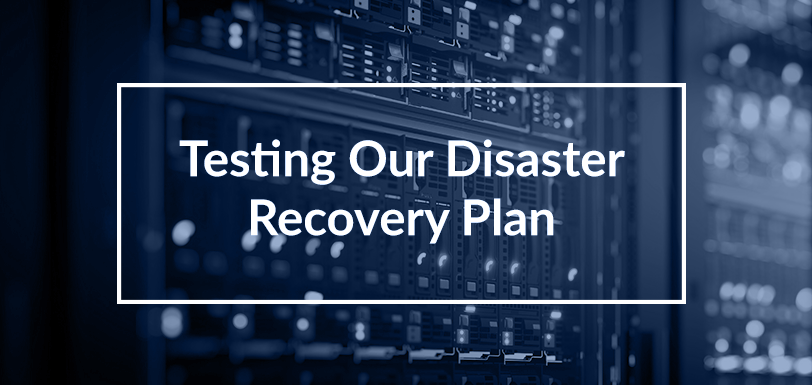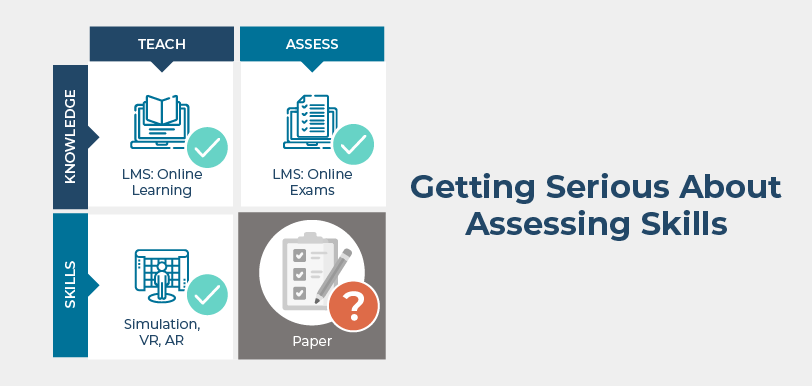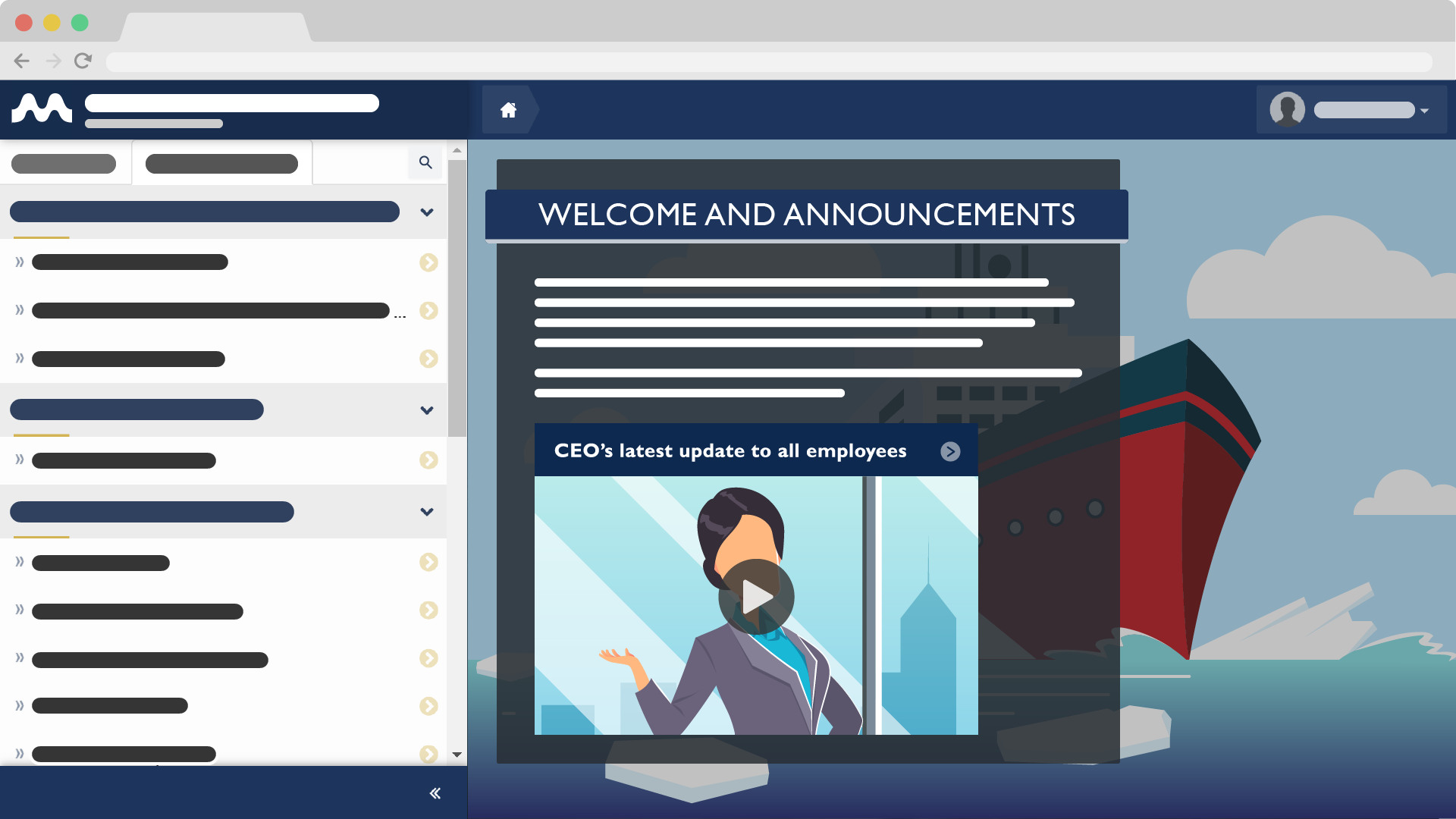Onboard Internet and the Implications for Maritime Training
Jun 8, 2015 Murray Goldberg 0 Maritime Training, MentorshipThe accelerating availability of onboard internet is heralding new opportunities for mariners in terms of anywhere/anytime learning, informal education, professional advancement, and the establishment and maintenance of virtual maritime learning communities.
The Never-ending March of New Technologies
There is not a day that goes by without me feeling a sense of awe at the rapid progress of technology. When the internet came to our houses and our places of work, it transformed our society and our economy. Some changes have been difficult, but most are positive and many are profound. Connectivity shrinks the distance between people allowing professional and personal relationships to thrive despite physical distance. It levels the playing field allowing anyone to instantly become a publisher and have their voice heard. And, most importantly in my view, it allows (almost) anyone, anywhere, to obtain an education.
I have had a front row seat to these changes. My masters thesis was in the area of high-speed computer to computer communication protocols. I was a computer science faculty member for 10 years. And I am a researcher, user and developer of eLearning platforms. So you would think I would be immune to being impressed by the rate of technological change. But I am not. Like anyone, there is not a day that goes by where I do not feel shocked and inspired by the new technologies available, the changes they can bring, and the further acceleration of additional new technologies they will enable.
Onboard Internet
One of the new technologies which is going to make a big difference to education in the maritime industry is the advent of satellite-based internet on board vessels. This movement is gaining steam and is likely to continue to accelerate due to the availability of more providers, smaller equipment and lower costs. If the maritime industry follows other industries’ past trends, it will not be long before it is, by far, the norm to have continuous connectivity. I recall back to my own experience in higher education. In 2002, 17% of classrooms in North America were covered by internet access. By 2006, that number had skyrocketed to 57%. Now it is unusual not to have connectivity. Once it starts, it moves quickly. In the maritime community, there are announcements practically every day of new marine VSAT service providers, new low-cost services, and new smaller and less expensive equipment. You can check them out for yourself by visiting http://www.satellitetoday.com and searching for “maritime”. We have entered the steep part of the curve.
The demand is fueled by a number of factors including the desire to link vessel systems with enterprise systems on shore, crew communication with vessel operators, and (where applicable) the demands of passengers who expect continuous internet access. Rarely is education cited as a driver for onboard internet. Happily, it does not matter all that much what the driving factor is for having the connectivity. All that matters is that there is broadband connectivity, and that all the crew members have access. When this happens, education becomes a huge beneficiary as a byproduct. The benefits accrue to mariners and vessel operators and are more profound than either is likely realize.
Implications for Maritime Training
The implications of broadband availability on board for training are significant. Each one of them yields a better trained mariner with more opportunity for career advancement. These benefits accrue to the individual mariner, to the vessel operator, and to the industry as a whole. Some of the benefits are obvious, and others are more subtle.
Learning Anywhere, Anytime
The most obvious benefit of onboard broadband is anytime, anywhere learning. When the eLearning revolution began in the early to mid 1990s, this was predicted to be the primary benefit. It turned out that the reality exceeded the predictions. eLearning institutions sprang up everywhere with almost every traditional college and university beginning to offer on-line courses and even degree programs. Education became available to a whole new demographic of students who were not able to attend traditional colleges.
The key, of course, is that education came to the learner instead of the learner having to go to their education. In addition, the asynchronous nature of most of the on-line programs meant that their education could now fit into their limited daytime schedules – allowing them to learn at night, on the weekends, or whenever they were able to. eLearning programs are also typically more flexible in terms of the time-frame in which they must be completed – adapting to any student regardless of whether they had one hour per day or many hours per day to devote to their studies. All this meant that people with full time jobs, people with family responsibilities, and people who were physically distant from campus were suddenly able to obtain an education where none was previously possible. Full-time workers now had new opportunities for professional advancement.
Unfortunately, this revolution largely bypassed the working mariner. All of the modern eLearning programs relied on the availability of internet access. No internet, no learning. So, aside from paper-based distance learning (a substandard experience in almost every respect) the only option available to the mariner was to learn while on shore. This limits the discretionary learning a mariner is likely to engage in – after all, who wants to spend their limited shore visits in front of a computer?
With onboard broadband, this is all changing. Suddenly mariners can spend their free time on board continuing their education and pursuing professional advancement. Full maritime eLearning programs from reputable institutions are more and more becoming the norm. If you would like to see one randomly selected example check out the program offerings at Middelsex University in London: http://www.mdx.ac.uk/courses/maritime.aspx. Yet while there is already a lot of choice in terms of online education for the mariner, increased onboard broadband will only drive the demand for maritime eLearning programs higher, causing the education industry to respond with still more educational variety and availability. Thus the onboard internet revolution that is happening now will result in a concomitant revolution of increased availability and variety of maritime eLeanring options. More eLearning options will drive onboard internet demand further still, resulting in yet again more learning options. It is a positive feedback cycle which is good for the entire industry.
Informal Learning
A more subtle, but equally profound result of onboard internet availability is a new opportunity for informal learning. Many readers may not have heard the term “informal learning” before, but everyone knows what it is. Informal learning is any learning activity outside “formal” instructor-lead, curriculum-based courses. This can be anything including a self-study program, a seminar, interactions with a mentor, reading a book, searching the web, or even reading company policy manuals. It comes about as a natural part of human inquisitiveness.
Before you dismiss informal learning as a hobby or curiosity, you need to understand that by some estimates, as much as 70% of learning in the workplace is by informal means. If this is true then the certification courses, familiarization training, and professional development courses taken account for only 30% of workplace learning. One of the reasons for the perceived importance of informal learning is that it is 100% learner-centered. That is, it is completely up to the learner to determine what they learn, how deeply they learn it, and when and where the learning takes place. This is not true of traditional learning models which often do not take into account individual learning styles, preexisting learner knowledge or background, or personal time or location constraints which inhibit learning. An individual will often be aware of the gaps in his or her knowledge and is then able to correct those gaps via informal learning models (i.e. by “looking it up”!).
This can be especially important in an environment where an employee might be reticent about the idea of reveling that they do not know something they think they should know. Often the more important the employee feels that the missing knowledge is, the more embarrassed they may be to ask a colleague or superior. Informal learning can fill that gap.
All of this together makes informal learning very important, and the internet has presented itself as the utopian informal learning environemnt. However, unlike almost every other industry, the maritime industry is not conducive to informal learning. After all, being on a vessel in the middle of the ocean tends to limit one’s access to learning resources. Fortunately, that is all changing now with the increasing availability of onboard internet. The value may seem subtle, but is, in fact, transformational.
Mentorship and Peer Community
Traditionally in the maritime industry a great deal of learning occurs as a result of mentorship or peer relationships. These relationships, when available, are a key part of continued learning and development. Unlike many classroom environments, discussions with peers and mentors can be free ranging and directly address the knowledge gaps of individuals. These relationships are very effective at disseminating maritime news, and for sharing real-world professional experience, knowledge and best practices. This is just the kind of traditional maritime learning that happens on board every day.
The problem, however, is that the shipboard community is small – there are only so many peers or mentors on board to learn from. In addition, the relationships formed on board are often fleeting – lasting only as long as those in the relationship remain shipmates. These factors severely limit the depth and length of peer and mentor relationships and thus limit the opportunity for learning.
Now, with onboard internet, these relationships and the traditional peer learning that naturally occurs on board are all multiplied many fold. First, the size of the community that each mariner has access to goes from tens of members to thousands and thousands. This broadening makes it much more likely that individuals will find a group of people they are comfortable sharing their experiences with. Secondly, peer or mentoring relationships that begin on board can now be maintained career long despite the working locations of the individuals. This extended duration allows individuals to know one another more closely and become more comfortable asking questions and sharing information. Thus the introduction of onboard internet will vastly broaden peer and mentor learning opportunities – a learning paradigm which is entrenched in maritime tradition.
What Does it Mean for Vessel Operators?
Most importantly, onboard internet needs to viewed less as an “employee perq” and more for what it really is – a tool that vessel operators can employ to create a better trained, safer crew. Where internet is on board, it needs to be made available to crew members in areas of the vessel where it can be used during off-duty hours.
Vessel operators can benefit also by the formation of company-based “crew communities” open to anyone in their organization. This gives employees a natural place on line to congregate, discuss company-specific issues and experience, and to learn from others who face common challenges and opportunities.
Finally, vessel operators should establish on-line sites for company training materials, familiarization materials, self-tests, and communication channels to mentors and people at company headquarters. This will lead to improved safety through standardization on best practices, will provide answers to questions that mariners have but may not be comfortable or able to ask, and will provide access to people who can help when issues arise – limiting the escalation of small issues into big problems.
So as I say, the training (and therefore safety) implications of onboard internet may not be immediately obvious, but are, in fact, profound.
Blog Notifications:
For email notifications of new maritime training articles, please follow this blog.
Interested in Marine Learning Systems?
Contact us here to learn how you can upgrade your training delivery and management process to achieve superior safety and crew performance.





